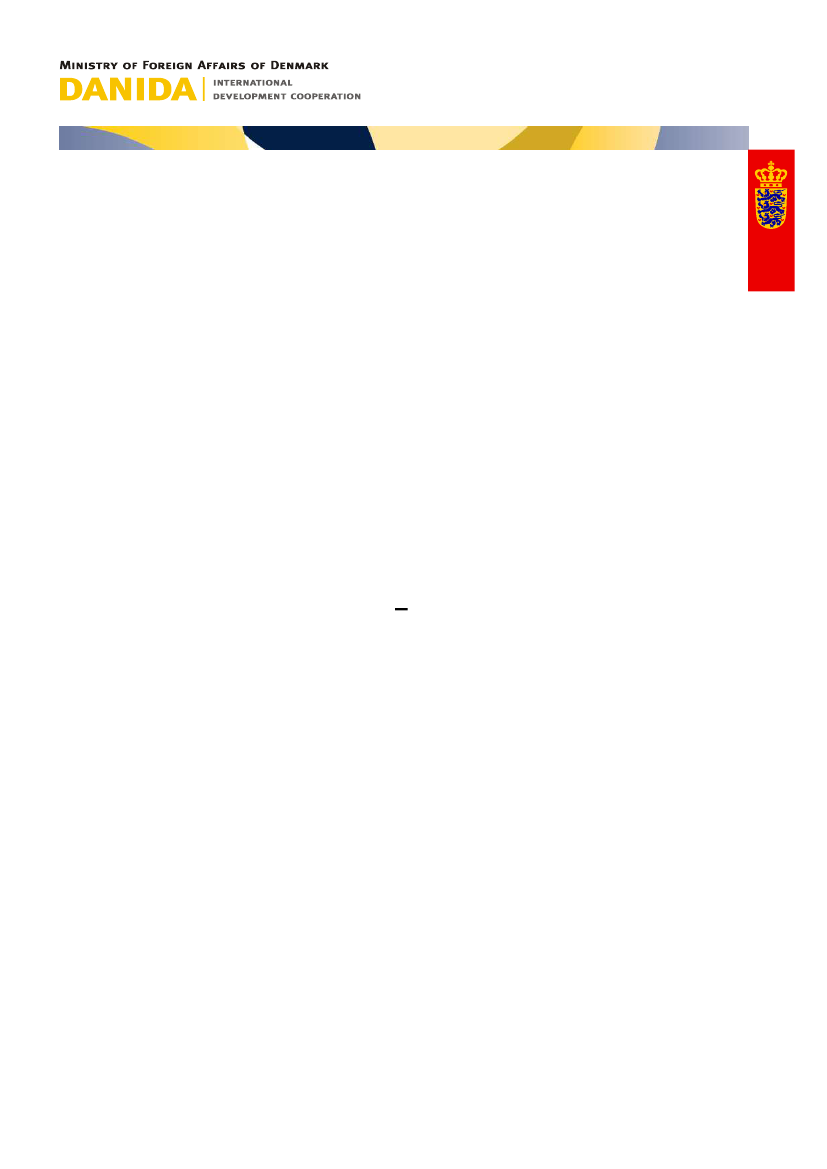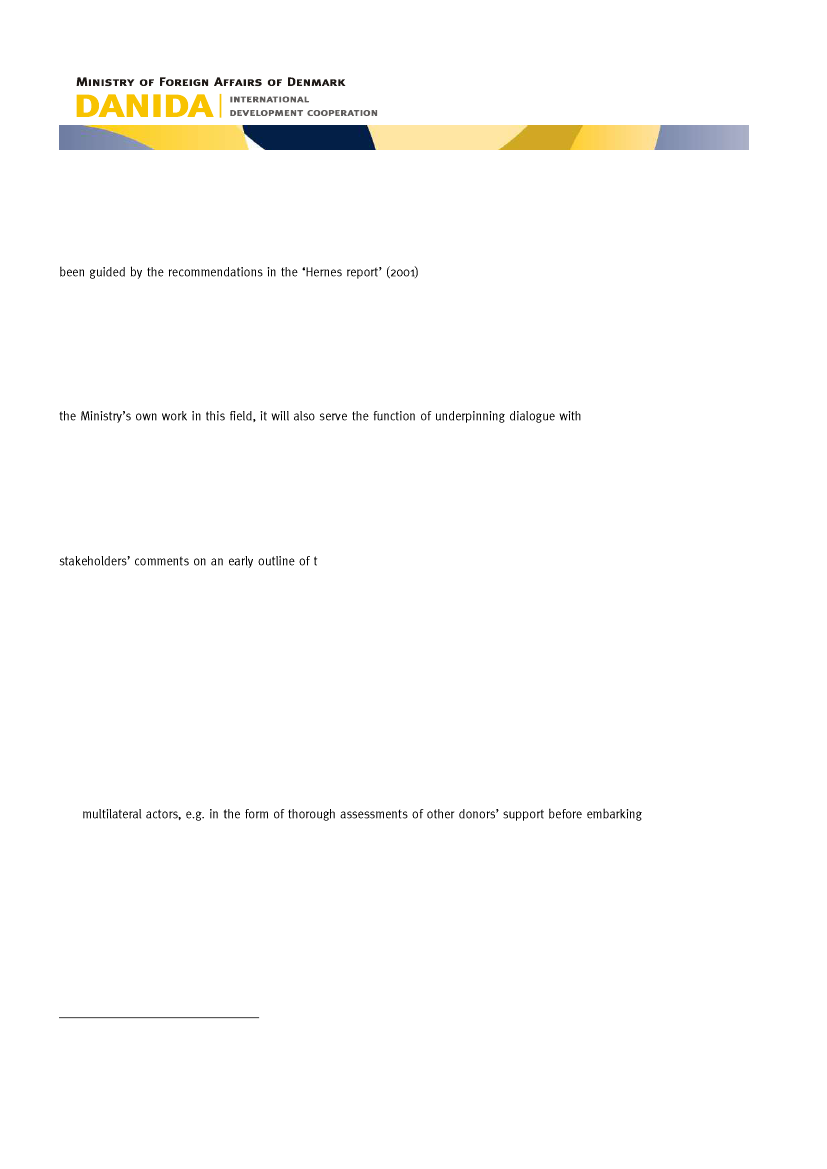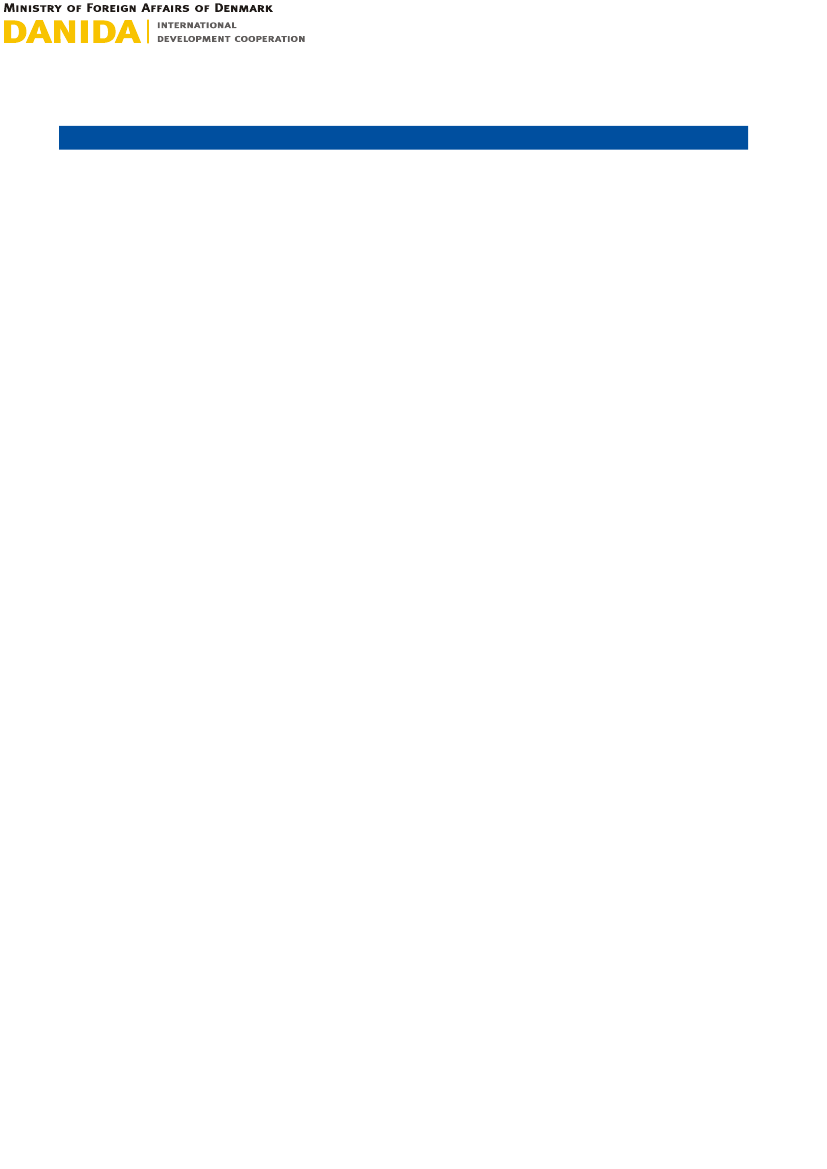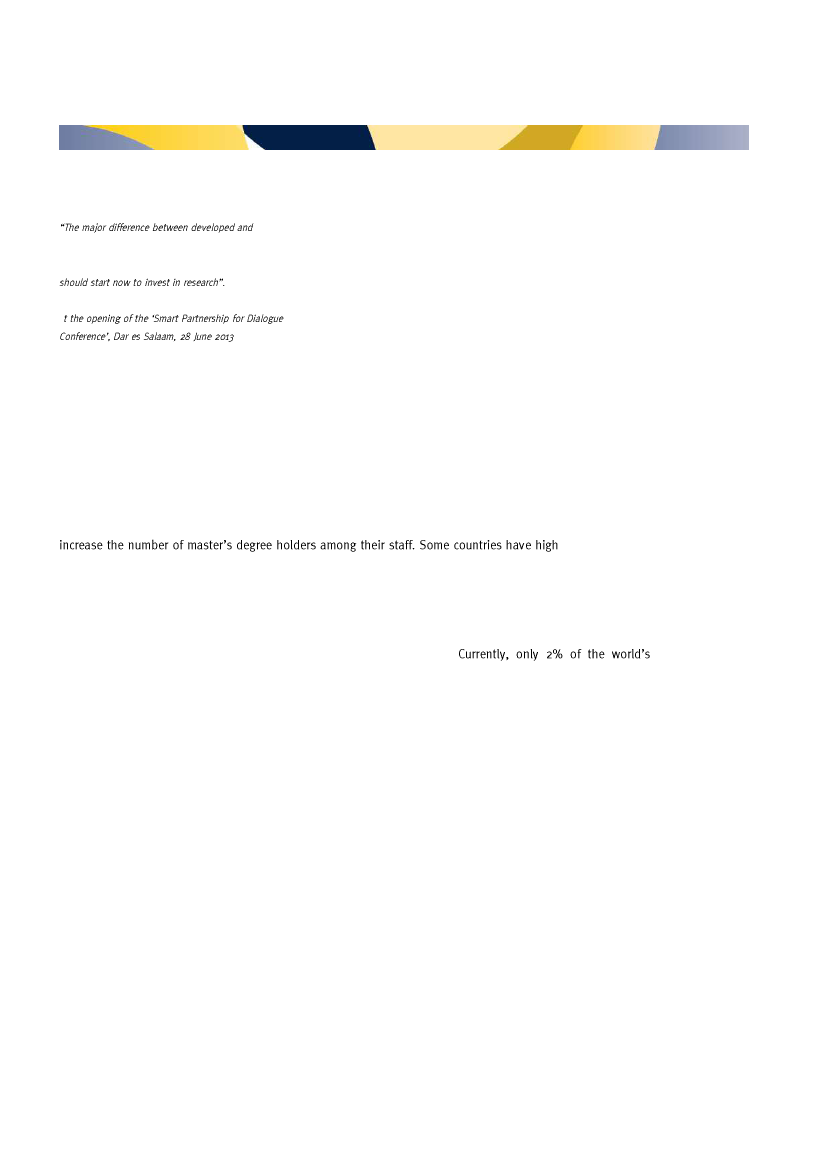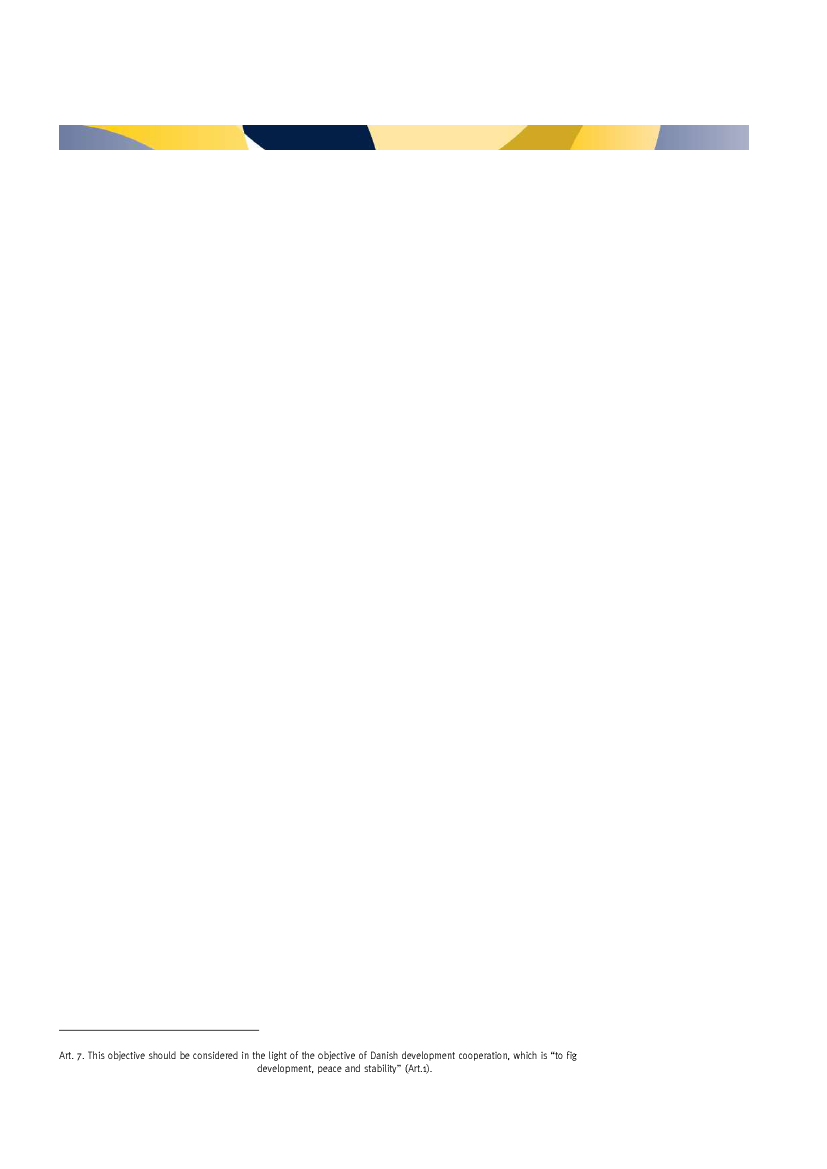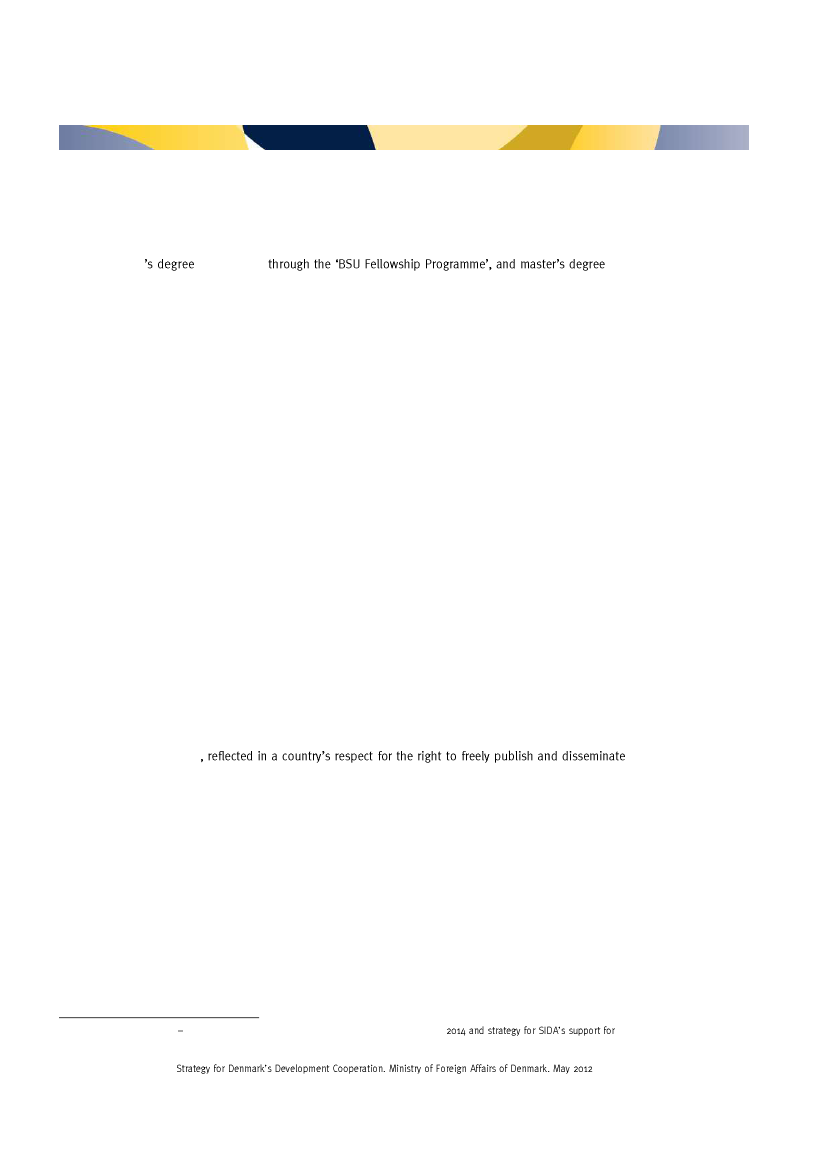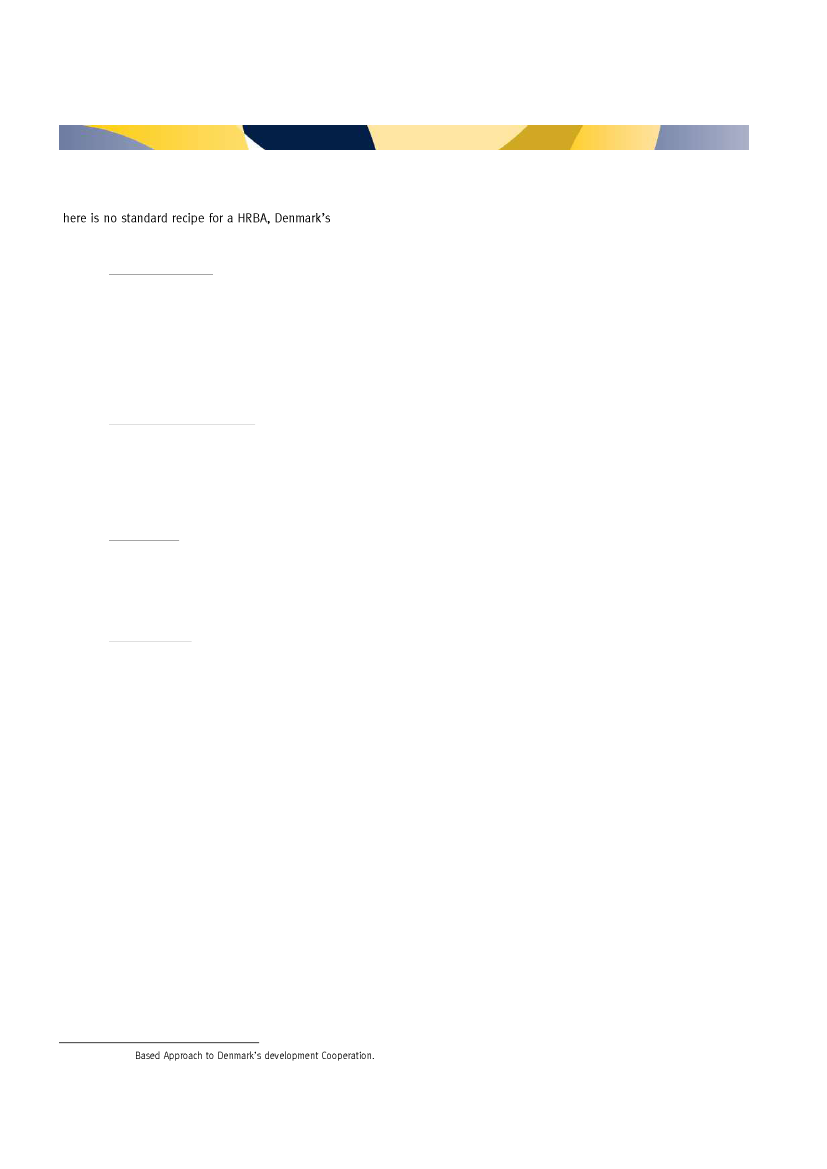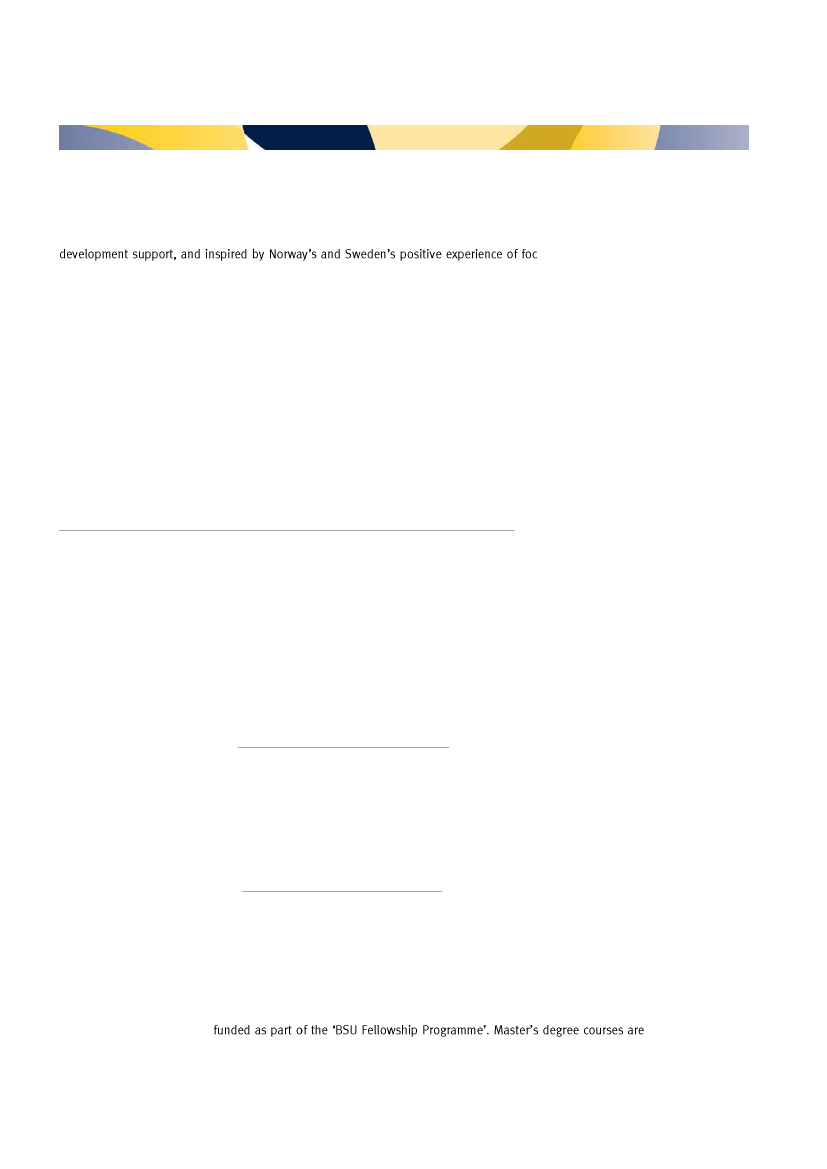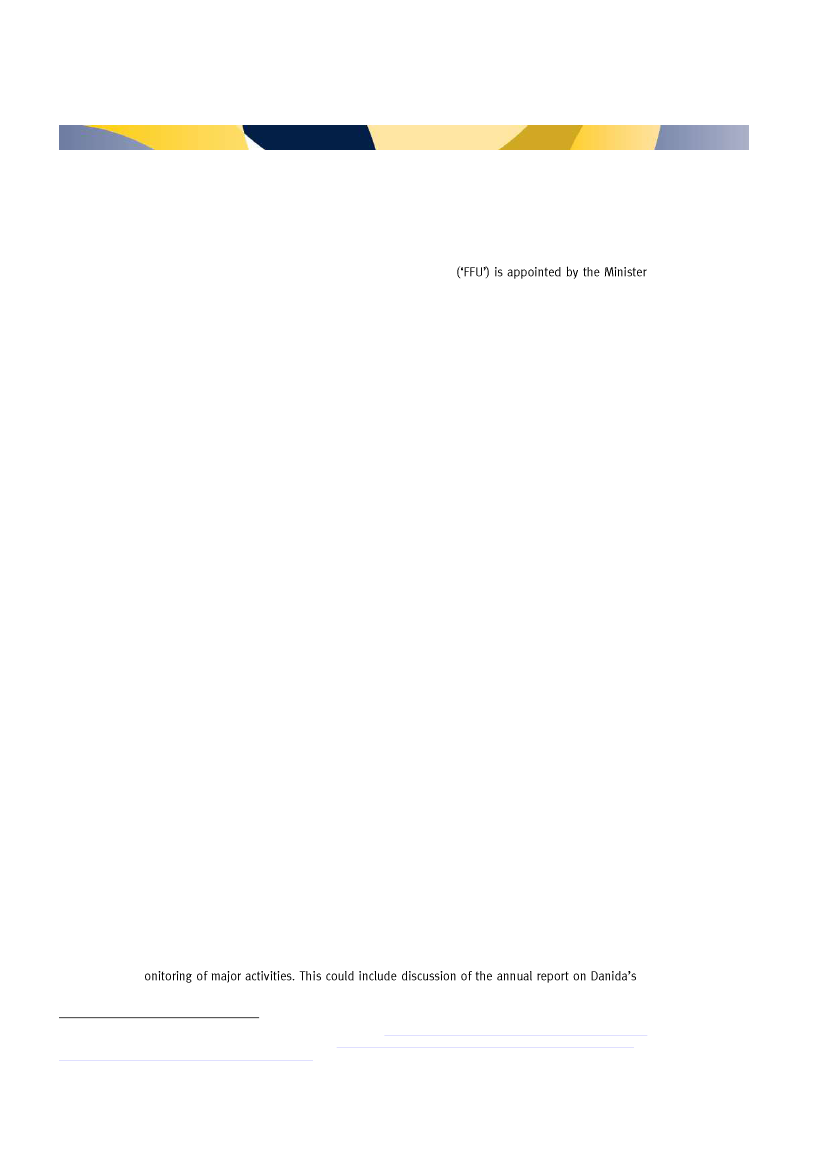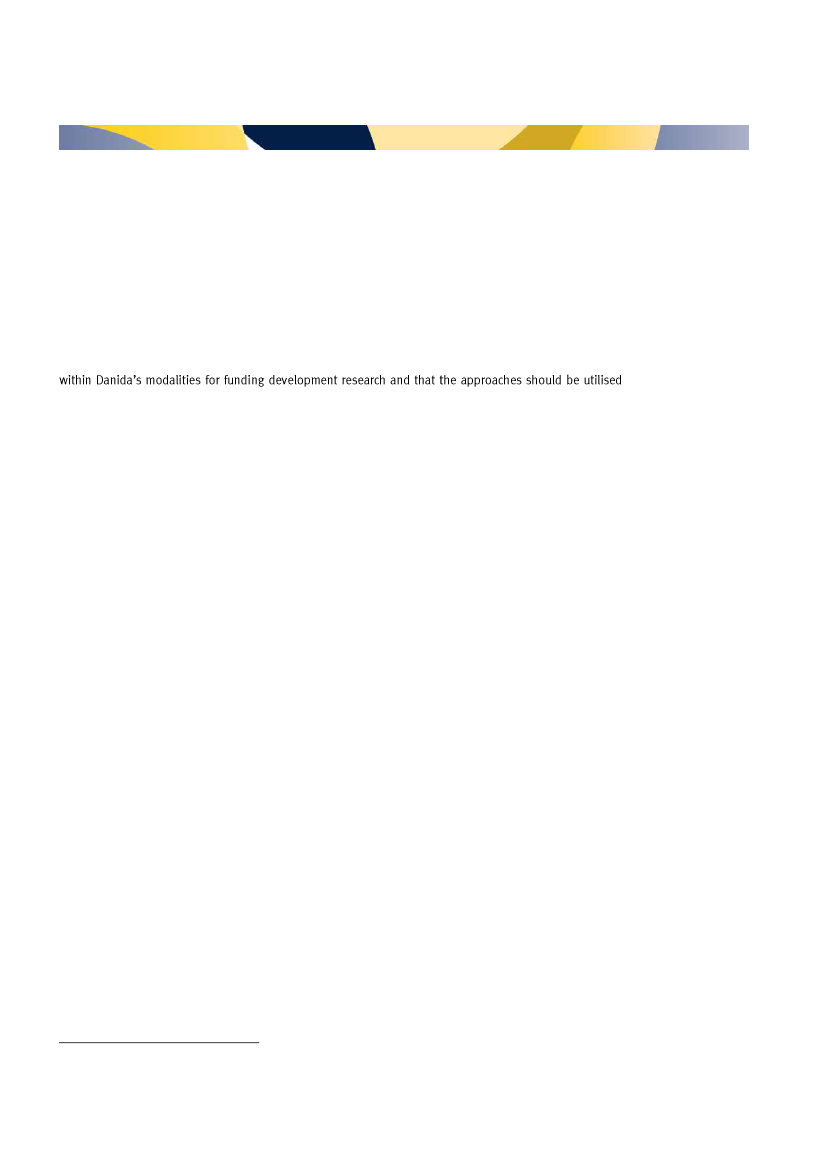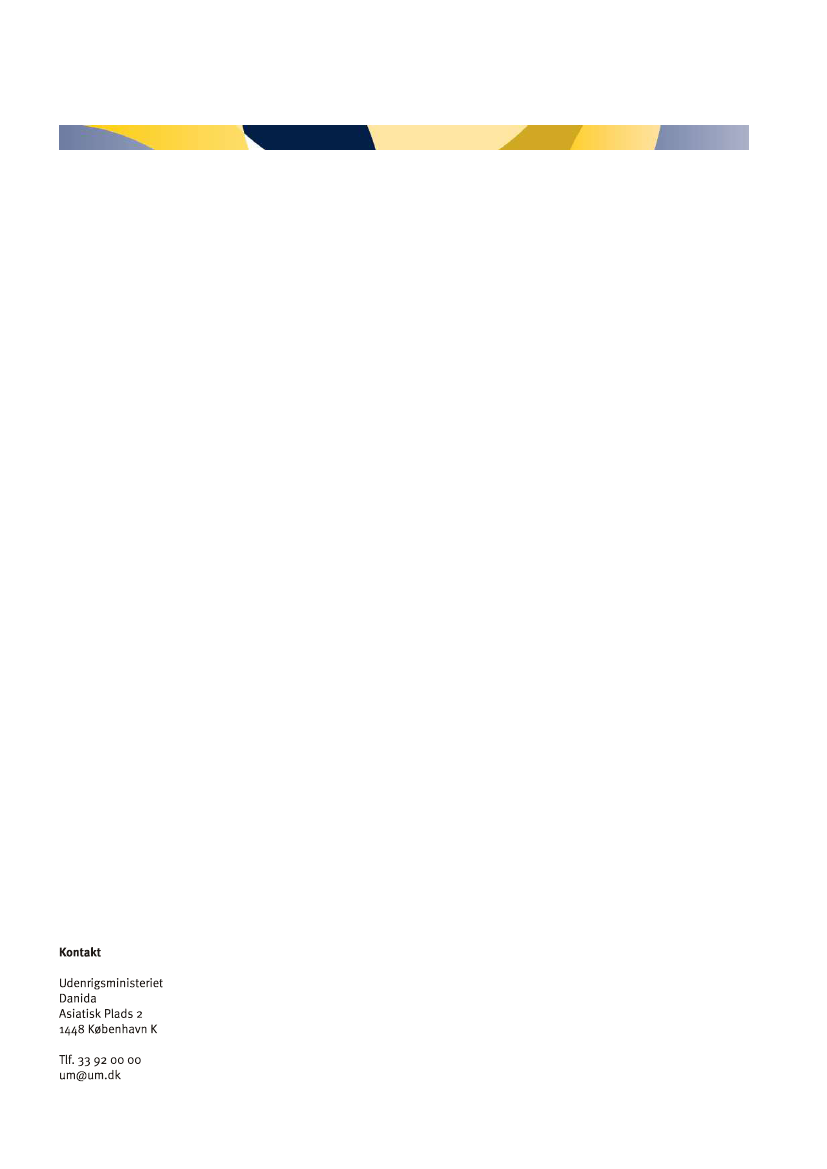Udenrigsudvalget 2013-14
URU Alm.del Bilag 20
Offentligt
[Double click here to insert picture]
STRATEGIC FRAMEWORKFORDANISH SUPPORT TO DEVELOPMENT RESEARCH20142018DRAFT
Ministry of Foreign Affairs, September 2013
PrefaceSupport for development research has not previously conformed to a formal strategic framework, but has1, in which an international panelexamined Danish development-oriented research. Key recommendations, followed up during the past decade,were to link support for development research closer to the priorities of Danish development cooperation, tocarefully consider the relevance of research activities, and to support larger integrated research programmesrather than standalone projects.The purpose of the strategic framework for Danida development research is to guide the allocation andprioritization of Danish funding of development research. In addition to providing a guiding framework forstakeholders in priority countries and in Denmark on support objectives and modalities. This should lead togreater transparency in future prioritization between the various elements of support, ultimately contributingto understanding and ownership of all parties involved.The strategic framework takes account of recommendations from reviews and evaluations of key Danida-funded development research activities, notably the recent evaluation of Danida-supported research onagriculture and natural resource management2, previous Danish and international experience, andhe strategy (April 2012). A public hearing of the present draftin Denmark and several priority countries during October and November 2013 is expected to provide furtherinputs to the strategic framework. The final version will be more elaborate and will include examples ofspecific support forms and lessons learned from the past.While much of the existing support for development research will continue over the coming years, thestrategic framework reflects a certain shift in emphasis regarding the various elements of the support. Amongthe major reorientations are:Danish support will to a greater extent be based on needs, demands and priorities in priority countries,and more emphasis will be placed on ownership and accountability in priority countries.Key Paris agenda principles, including alignment, will guide the support for development research, i.e.research objectives should be in line with national priorities.Attempts will be made to ensure closer cooperation and coordination with other bilateral andupon new Danish support, joint evaluations, joint support for national research strategies, etc.There will be increased geographical focusing, so that, instead of covering all Danish priority countries,the support will gradually concentrate on 5-7 countries.A Human Rights-Based Approach will be applied in the design and management of research activities,and greater attention will be paid to gender equality.To ensure better application of research in development cooperation, there will be more emphasis oncommunication, dissemination, documentation and use of research results in development cooperation.The results framework for support for development research will be strengthened and particular attentionwill be paid to the development of better indicators for all support.
1
Partnerships at the Leading Edge: A Danish Vision for Knowledge, Research and Development. Commission on Development-RelatedResearch, Ministry of Foreign Affairs of Denmark. April 2001.2Evaluation of Danida supported Research on Agriculture and Natural Resource Management. ORBICON & ITAD. Ministry of Foreign Affairs,September 2013.
Ministry of Foreign Affairs, September 2013
1. Introduction ....................................................................................................................................................... 22. Objectives and Modalities ................................................................................................................................ 33. Concepts and Context ...................................................................................................................................... 43.1 What is research capacity? .............................................................................................................................. 43.2 A Human Rights-Based Approach to development research.......................................................................... 43.3 Thematic focus of the support ....................................................................................................................... 53.4 Geographical focus of the support ................................................................................................................. 64. Activities ........................................................................................................................................................... 64.1 Objective 1: Research capacity in priority countries strengthened................................................................ 64.2 Objective 2: Innovative and relevant development research results produced ............................................. 74.3 Objective 3: Research results used ................................................................................................................ 75. Partners in implementation .............................................................................................................................. 96. Management ..................................................................................................................................................... 97. Monitoring and Evaluation .............................................................................................................................. 11
Ministry of Foreign Affairs, September 2013
developing countries is the investment in scienceand technology. Governments in developing countries
President J.M. Kikwete, United Republic of Tanzaniaa
1. Introduction
Research-based knowledge is necessary to address existing and emerging development problems, andsupport for development research is an important element of Danish development cooperation. These years,there is increasing awareness among political leaders in developing countries about the importance ofresearch, and some have begun to invest their own government funds in research. Needs and challengesvary significantly among countries. While in the last decade, some have undergone an impressivedevelopment and now have universities with internationally recognised researchers, others are struggling to-qualityuniversities, yet suffer a growing divide between these (usually based in the capital) and provincialuniversities and research institutions, which are lagging significantly behind. The emergence of privateuniversities adds to the complexity of the scenario.The overall trend is encouraging, but developing countries cannot meet the massive challenges and needsfor country-specific research and capacity development on their own.researchers live in Africa, and they produce less than 1% of world output of scientific articles. Furthermore,within Africa researchers are concentrated in a few countries. OECD countries account for 21% of worldpopulation, yet contribute more than 80% of research funding, amounting to some 1-4% of their GNP. InSub-Saharan Africa, inhabited by 12% of world population, only 0.5% of GNP is spent on research.Assistance from Denmark and other countries remains essential. While in the past the main challenge wasseen as the transfer of knowledge produced internationally, current development suggests that emphasisshould be on supporting the building of research capacity in developing countries. Instead of supportingDanish and other international research institutions to produce the knowledge needed to improve conditionsin developing countries, support should aim at enabling the countries themselves to produce the knowledgethey need.The shift of emphasis does not imply that Danish and other international research institutions will no longerbe important partners. Denmark has a strong tradition of development research. Danish educational andresearch institutions are internationally renowned and contribute to generating new knowledge andinnovative solutions much needed by developing countries. In a globalised world, international researchcooperation is an important aspect of increased economic, social and political cooperation across nationalboundaries, and working together brings obvious synergies and gains for researchers both in developingcountries and in Denmark. Danish research institutions, the private sector, and society at large will continueto benefit from knowledge and experience gained through such cooperation, but the cooperation will, to alarger extent, be driven by researchers in the South, and it should reflect the needs and priorities ofdeveloping countries.2
Ministry of Foreign Affairs, September 2013
2. Objectives and Modalities
The overall objectiveof Danish support for development supportis to strengthen research capacity indeveloping countries and to create new knowledge capable of alleviating development problems3.This general objective is to be supported by pursuing three immediate objectives. In relation to each ofthese, key result areas have been identified as being conducive to fulfilling the objectives:Immediate objective 1.Key result area 1.a.Key result area 1.b.Key result area 1.c.Immediate objective 2.Key result area 2.a.Key result area 2.b.Immediate objective 3.Key result area 3.a.Key result area 3.b.Key result area 3.c.Research capacity in priority countries strengthenedImproving research policies and strategies at country level in priority countries.Strengthening institutional capacity development of entities in priority countries.Strengthening individual capacity development at graduate/postgraduate levels.Innovative and relevant development research results producedSpecific joint research projects between priority countries andDanish/international researchers.Core funding of leading regional and international research institutions.Research results usedResearch is driven by demand.Research results are communicated to decision makers and stakeholders inpriority countries.Development cooperation draws on research results.
The Ministry of Foreign Affairs has a longstanding record of supporting development research within a vastvariety of areas of intervention, ranging from grants to individual research projects, capacity developmentand scholarship programmes, through contributions to international research institutions, to funding ofparticular research programmes implemented by Danish and international organisations.Considering the diversity of needs in the various priority countries, the strategy for achieving the objectivesmust continue to include a broad range of specific support forms. The following modalities will be applied:1.South-driven development research cooperation; joint strategic research projects are applied for,selected on a competitive basis, and implemented by research institutions in selected Danidapriority countries in collaboration with researchers based in Danish institutions.North-driven development research cooperation; joint strategic research projects are applied for,selected on a competitive basis, and implemented by researchers based in Danish institutions incollaboration with institutions in Danida priority countries.Support for institutional capacity development of a limited number of universities in selectedpriority countries through their collaboration with Danish universities.
2.
3.
3
International Development Cooperation Act (Lovom Internationalt Udviklingssamarbejde),approved by the Danish Parliament in May 2012,ht poverty andpromote human rights, democracy, sustainable
3
Ministry of Foreign Affairs, September 2013
4.
Ph.D. scholarships and support for postdoctoral studies as part of the South- and North-drivenresearch cooperation projects.Masterscholarshipsscholarships managed by the Danida Fellowship Centre.Core funding of selected international and regional institutions and networks in the field ofdevelopment research.Integration of research elements into development cooperation programmes.Support for the strengthening of national research management mechanisms in selected prioritycountries.
5.
6.
7.8.
The latter is a new modality, not previously applied by Denmark. It will be tested in a country with extensiveand long-established Danish support within the area of development research. It will be investigated whetherDenmark could support e.g. the development of a national research strategy and the establishment ofnational peer review mechanisms. Based on experience from a test case, options for moving further alongthis path will be explored.
3. Concepts and Context
3.1 What is research capacity?Research capacity has several dimensions, and SIDA4proposes a useful distinction between the followinglevels:Regional and international capacity,reflected in resources for cooperation, financing and thedissemination of knowledge.National capacityresearch and its ability to develop overall policies and strategies both for research and for thecoordination and administration of national resources for research.Institutional capacity(universities and research institutions), reflected in the ability to mobilise andallocate resources, assess research, recruit and train researchers and supply laboratories, libraries,internet services and other important infrastructure.Individual research capacity,reflected in the ability to identify, conduct and present research.
These concepts and definitions are referred to below when discussing the various forms of support forresearch capacity development. When individual capacity development is mentioned in the context of Danishsupport, it mainly refers to MSc, PhD and postdoctoral courses.3.2 A Human Rights-Based Approach to development researchThe promotion of human rights is a key objective of Danish development cooperation,5where human rightsare both a means and an end.6The Human Rights-Based Approach (HRBA) is being rolled out in all policy4
Research for Development Policy for research in Swedish development cooperation 2010-research cooperation 2010-2014. SIDA, 2010.5The International Development Cooperation Act, 2012, Article 1, sec. 1.6The Right to a Better Life.
4
Ministry of Foreign Affairs, September 2013
and programme areas, and it must be applied to all development cooperation activities. Recognising thattapproach is meant to balance ideals with pragmatism andrealism, taking a country-specific point of departure and adhering to the following four principles7:Non-discrimination: On a global scale, academic and research environments tend to be skewed indisfavour of ethnic and linguistic minorities and poorer groups in society, often being rightly viewedas elitist and non-inclusive. As for gender equality, significantly larger numbers of male than femaleresearchers apply for and receive funding for research projects. This reflects deep and complexunderlying structures and challenges, which are mostly beyond the scope of what can be addressedby Denmark in this field. However, when supporting research activities, attention will be paid toensure that female researchers in priority countries are included, and that obstacles to theirparticipation are identified and addressed.Participation and inclusion: Most of the modalities described in this strategic framework are basedon the premise that a partnership at the individual and institutional levels can be establishedbetween stakeholders in priority countries and in Denmark. It is a key objective that partnershipsshould be forged among equals, in the sense that researchers and institutions in both prioritycountries and in Denmark contribute to the design, implementation and completion (includingpolicy inputs and dissemination in various forms) of research activities.Transparency: Fundamentally, sound and motivated research must be substantiated by availableempirical material and data, while research results need to be freely communicated and exchangedwithin and beyond academic circles. When selecting partners and projects for funding, it is crucialthat decisions are based on clearly established assessment criteria openly presented to applicantsand other stakeholders.Accountability: Danish development cooperation frameworks demand accountability of partnersboth in priority countries and in Denmark. This applies to all aspects of the project cycle, includingthe phases of planning, implementation, and follow-up. All partners receiving funding are subject tostrict requirements in terms of governance and administration as well as regarding documentationof academic input and output.
3.3 Thematic focus of the supportDenmark will seek to start from the needs of partners in priority countries, allowing partners to identify theresearch fields and questions that they find to be most pertinent for their development efforts.However, some research cooperation applied for and managed by researchers based in Danish institutionswill continue. For these undertakings, support will be guided by a thematic focus linked to the developmentcooperation strategy in force. Since it takes years to build strong research environments, it does notrepresent the best use of resources to brusquely cut off funding of certain research activities wheneverpolitical priorities change. Accordingly, the link to the current development cooperation strategy cannot beoverly rigid. During the past decade, key themes have been growth and employment; governance anddemocracy; environment, energy and climate change; human health; and conflict and fragility. Though humanhealth is no longer a key theme in the development cooperation strategy, the internationally recognizedhealth research community in Denmark will continue to be involved in research cooperation at least in theshort to medium term.
7
A Human Rights-Ministry of Foreign Affairs of Denmark. February 2013.
Guidance and Inspiration for Policy Dialogue and Programming.
5
Ministry of Foreign Affairs, September 2013
3.4 Geographical focus of the supportThe geographical orientation of the support will be narrowed down to fewer countries. With a view toimproving synergies between the various support forms, notably individual and institutional capacityusing efforts on alimited number of countries, Denmark will select 5-7 countries which will, over time, receive the bulk of fundsallocated to development research. These will be countries in which there is a long-term Danish engagementin academic cooperation and research, and the group will include Tanzania, Ghana and Nepal, where severalof the support forms are already being applied with positive results.
4. Activities
4.1 Objective 1: Research capacity in priority countries strengthenedStrengthening of research capacity in priority countries aims at making them less dependent upon knowledgeproduced in developed countries and better able to plan, create and use research-based knowledge toalleviate poverty.Support for research policies and strategies at country level in priority countries (1.c) is a new activity forDenmark, but a logical next step after many years of individual and institutional capacity developmentsupport. It could involve a contribution to the preparation of a national research strategy in a selectedpriority country, establishing or promoting existing national research councils (management procedures, etc.),establishing or strengthening ethical committees, and strengthening procedures for peer assessment ofresearch funding applications.Since such support requires a concerted in-country effort by Danish embassies in close collaboration withpriority country institutions as well as with other donors, it is not expected that Denmark can provide this ona larger scale. Instead various approaches will be tested in a selected country, and based on this experience,it will be decided whether to pursue the same approach elsewhere.The backbone of the support for institutional capacity development (1.b) is the Building Stronger Universitiesprogramme, which aims at strengthening research environments and research processes by linking upselected institutions in priority countries to Danish universities. Activities include establishment of Ph.D.schools with related course development, courses in better Ph.D. supervision, development of protocols,faculty exchange, accreditation, dissemination of research results, etc. Inspired by the positive experience ofSouth-driven research cooperation projects, the Building Stronger Universities will also be managed bypartners in priority countries.Denmark will continue to support individual capacity development (1.a) mainly by funding PhD andpostdoctoral studies as part of wider strategic research cooperation projects. To a limited degree, DanishPhD and postdoctoral studies can also be included in research cooperation projects, but emphasis will be onsupporting students from priority countries.Denmark aims at strengthening research capacity rather than financing tertiary education, as the latterreceives massive support from many other donors. With a view to improving networks and mutualunderstanding among Danish students and students from African and Asian countries, however, a limitednumber of M.Sc. studies areoffered to students from countries that participate in the Building Stronger Universities programme.6
Ministry of Foreign Affairs, September 2013
4.2 Objective 2: Innovative and relevant development research results producedProduction of relevant research-based knowledge is an important means to alleviate poverty and promotehuman rights.For many years, Denmark has supported joint research projects between researchers based in prioritycountries and Danish researchers (2.a.). Projects are selected after competitive bidding based on threeequally weighted criteria: relevance, effect, and research quality. Each grant is allocated for of up to 5 yearswith a budget of approx. DKK 10 million.While the traditional approach has been to invite researchers based in Danish institutions to apply incooperation with researchers from institutions in priority countries, in 2008 the South-driven approach wasintroduced on a pilot basis in Vietnam and Tanzania. Later, a similar approach has been applied in Ghanaand Nepal.The funding of research cooperation projects is set to continue in the future, and based on positiveexperiences of South-driven projects, this modality will be scaled up relative to North-driven projects. Whilein 2008-2012, about 80% of this type of funding was allocated to North-driven and 20% to South-drivenprojects, the ambition over time is to arrive at a distribution of about 50-50. In order for South-drivenprojects to reap their full benefits, efforts may need to be invested in strengthening research managementcapacity in the priority countries concerned. This gives rise to potential synergies with the Building StrongerUniversities programme. Ultimately, South-driven projects should live up to the same research andmanagement quality standards as projects managed from Denmark.Another way of supporting the development of innovative research is to provide core funding to leadingregional and international research institutions (2.b.). In order to ensure sufficient dialogue with theinstitutions, Denmark will continue to concentrate core funding on a limited number of research institutions,mainly regional institutions in Africa, and in a few cases leading international research institutions thatcooperate closely with national institutions in developing countries. Cooperation with other donors, notablyNorway on Sweden, supporting the same institutions, will be increased. This will include undertaking jointevaluations to inform the ongoing dialogue with the institutions.4.3 Objective 3: Research results usedFailure to share research results with relevant stakeholders represents a missed opportunity for optimisingthe impact of funds invested. It is a key objective to ensure that research results are communicated inappropriate forms to the various stakeholders, thus informing both development agendas and practicalsolutions in the countries involved.It is assumed that research driven by demand (3.a.) is more likely to reach an interested audience andeventually be applied than research driven solely by intellectual curiosity. The latter is a key feature of allgood research, but if research topics are decided far from potential beneficiaries, the usefulness of researchresults becomes less certain.When South-based partners assume greater ownership of the research conducted, it is believed to strengthenthe use of research results in the countries. Local researchers tend to be better informed than foreignersabout the many conflicting agendas in their own country and about the needs of the various stakeholders.They are also better placed to link up with the private sector, civil society and government representativeswhen designing their research.
7
Ministry of Foreign Affairs, September 2013
Closely linked to the demand aspect is the feedback process of communicating research results to decisionmakers and other stakeholders in priority countries (3.b). The recent evaluation of Danida-supported researchon agriculture and natural resource management8points out that more could be done to ensure that researchresults are shared. Danida will seek inspiration from DFID, which has been working systematically for severalyears to improve research communication and uptake of research results.When awarding grants for research projects, it has become a requirement that a management brief with keyrecommendations to policy makers and other stakeholders is produced at the end of the research9. Futureapplications must present reflections on how to involve target groups better in the preparation andimplementation of research, and it may also be necessary to consider communication skills as a requirementin the manning of research teams.Earmarked funds for the dissemination of research results will be a general requirement in all Danish supportfor development research (except in core funding of organisations, in which case their communicationsshould be an issue in the general dialogue).It is an important aspect of uptake of research that development cooperation should draw on researchresults (3.c.). This is best ensured through direct integration of research into a development programme.Research components are found in certain sector programmes, and in such cases funds are often channelledto projects of cooperation between Danish and national research entities. While excellent synergies betweendevelopment cooperation and research have sometimes been seen, past expectations of extensivelyintegrating research have not materialised. One reason might be that national development partners (e.g.ministries, private sector or civil society actors) do not necessarily see research as a key priority, and anotherreason, sometimes mentioned by Danish researchers, is that they are less familiar with bidding according toEU tender rules.Another option is to use minor studies to inform the handling of particular issues that have emerged fromdevelopment cooperation in a particular country, or to inform the overall direction of Danish developmentcooperation. Such studies are being financed both by programme funds in the various countries, whereDenmark is working, and through a special budget managed by headquarters.It is possible for Danida to improve its uptake of those research results that have been produced withoutbeing specifically commissioned by Danida itself. This regards the North-driven and South-driven researchcooperation projects and also the research produced by institutions which receive core funding fromDenmark. For research cooperation projects, feedback to the embassies could take place in a moresystematic way, e.g. by requiring researchers to present research findings at regular seminars for embassystaff and relevant national partners.Finally, more continuous and systematic use of reviews and evaluations of the various research modalitiesdescribed here is necessary to assess the relevance of results to development cooperation.
8
Evaluation of Danida supported Research on Agriculture and Natural Resource Management. ORBOCON & ITAD. Ministry of Foreign Affairs,September 2013.9Other recent initiatives to improve communication about research include the establishment of the Danida Research Portal with informationon all Danida-funded research projects:http://www.forskningsdatabasen.dk/
8
Ministry of Foreign Affairs, September 2013
5. Partners in implementation
Researchers and research institutions in selected priority countries are key partners in the implementation ofthis strategic framework for support to development research. As it has been argued, capacity developmentsupport should be directed towards them, and they should produce a major share of the research resultsgenerated by the support.Researchers in Danish institutions are other important partners both in the development cooperation projectsand in the Building Stronger Universities programme, where they contribute their experience to the capacitydevelopment of research colleagues and institutions in priority countries.The international research community contributes to the production of new knowledge paid for by Danidaand is in turn a recipient of research results generated by the research cooperation described.In addition to those directly involved in the research process researchers and research institutions usersand potential users of research are important partners. They include stakeholders in the priority countries,such as political leaders, government institutions, the private sector, civil society organisations, and localcommunities in areas where research is undertaken. The strategy has defined the ambition of enhancing theinvolvement of these stakeholders both in the design of research activities and in the use of results.Danish stakeholders are also important. Deepening the understanding among actors in the Danish privatesector and in civil society about development challenges and possible solutions is important for the role ofDenmark in a globalised world. It is also important for commercial cooperation, political cooperation, andcross-cultural understanding between Danes and citizens of other countries.Finally, Danida and others directly involved in development cooperation are important partners of theresearch communities supported. As users of the research results, development practitioners rely on resultsbeing communicated in a clear and targeted form, where conclusions are based on evidence, andrecommendations consider the possibilities of the targeted audience for influencing decisions.
6. Management
The Ministry of Foreign Affairs coordinates all support to development research and takes decisionsconcerning grants. The responsible department is Technical Advisory Services, which prepares new grants,undertakes the dialogue with the various partners, follows up ongoing activities, and has formalresponsibility for the management of Danish support, including financial management.Danish embassies in countries with major research activities maintain a dialogue with national researchpartners and, to the extent possible, also with Danish researchers doing fieldwork in the country. In countrieswith South-driven research cooperation (presently Tanzania, Ghana, Nepal and Vietnam), embassies are moreextensively involved in the dialogue with partners, including the organisation of annual research meetingsattended by representatives of the government, private sector and civil society.The administrative management of research grants has been outsourced to the Danida Fellowship Centre(DFC). DFC transfers funds to partners, communicates with partners about all administrative and financial9
Ministry of Foreign Affairs, September 2013
aspects of research grants, follows up progress and completion reporting, and approves final auditedaccounts.The Ministry of Foreign Affairs is advised by several bodies concerning decisions on the allocation of researchgrants. The Consultative Research Committee on Development Research10for Development Cooperation. It acts as a programme committee under the Danish Council for StrategicResearch11, and is responsible for assessing South-driven and North-driven applications for researchcooperation and for recommending to the Minister which projects to fund. FFU draws on assessments byinternational peer reviews of the research quality of applications and assessments by the embassies of therelevance of the research proposed.The Consultative Research Committee on Development Research has nine members, including arepresentative of the Ministry of Foreign Affairs. The external members are Danish researchers representingrelevant academic fields. One member must also be a member of the External Grants Committee of theMinistry of Foreign Affairs, while one member must be a member of the Council for Development Policy. TheStrategic Research Council has called for the inclusion of foreign members in Danish government researchcouncils, and it will be considered to appoint members from other Nordic countries and from prioritycountries when the new FFU takes office from 2015 onwards.In countries with South-driven research cooperation activities, National Screening Mechanisms areestablished to assess the relevance, research quality and potential effect of research applications submittedby national researchers. National Screening Mechanisms either consist of a national body with formalauthority to coordinate support for research or, in countries where such mechanisms do not exist, theyconsists of panels of esteemed national academics representing relevant academic fields. National ScreeningMechanisms shortlist a limited number of applications for further assessment by the FFU.In the future, it may be considered to set aside a share of research cooperation funds to invite applicationsin selected priority countries, whose own institutions could control the awarding of grants. This is an areawith only limited international experience, and a pilot approach may be relevant at this stage.The External Grant Committee of the Ministry of Foreign Affairs consists of four internal members and fourexternal members and advises the Minister for Development Cooperation on allocation of all grants fordevelopment cooperation above DKK 35 million. Support for research that is not in the category of grants forSouth-driven or North-driven research cooperation projects, which falls under the mandate of FFU, must bepresented to the External Grants Committee.The Council for Development Policy advises the Minister for Development Cooperation on overall issues ofrelevance to development cooperation, including priorities for Danish support for development research. Thepresent draft strategic framework will be on the agenda of a meeting of the Council for Development Policybefore the final version is drawn up.It is being considered to establish an Advisory Board on Development Research which could meet with theMinister for Development Cooperation on a semi-annual basis for more in-depth discussions about researchpriorities and msupport for development research, and reporting on progress of the Building Stronger Universities1011
Det Rådgivende Forskningsfaglige Udvalg, FFU. For further information, seehttp://um.dk/en/danida-en/partners/research/cons-research-com/Det Strategiske Forskningsråd, DSF. For further information, seehttp://fivu.dk/en/research-and-innovation/councils-and-commissions/the-danish-council-for-strategic-research?set_language=en&cl=en
10
Ministry of Foreign Affairs, September 2013
programme, the South-driven research cooperation, and other major activities. Members of the AdvisoryBoard could include representatives of Universities Denmark, other major Danish research institutions, andrepresentatives of partners in priority countries.
7. Monitoring and Evaluation
The evaluation of Danida-supported research on agriculture and natural resource management12pointed outthat the results framework for support for development research needs to be strengthened. It recommendedthat a Logical Framework Approach (LFA) and Results-Based Management (RBM) should be institutionalisedfrom the overall strategic level down to projects and other funded activities. The evaluation particularlycalled for the application of well-defined indicators in order to measure results.In the present strategic framework, it has been attempted to follow these recommendations by applying aLFA to the presentation of overall and immediate objectives of the support for development research.Whenever it is practically possible, LFA and RBM will be applied in a more systematic way in the formulationof new activities, while a series of initiatives will serve to institutionalise the approach. These include:Amendment of guidelines for South-driven and North-driven research cooperation projects so theyinclude clear definitions and instructions on what constitutes an objective, output, outcome andindicator.Training in LFA and development of indicators in in-country training workshops on financial managementoffered by Danida Fellowship Centre in countries with South-driven research cooperation projects.Revised formats for annual reports and project completion reports to reflect the increased focus on clearresults and indicators. It will not be required to undertake baseline studies at project start, since thecost of such an effort would not be commensurate with the relatively limited funds for each project.Intense dialogue with South partners in the Building Stronger Universities programme on the need forclearly defined objectives, indicators and follow-up when receiving progress reports.Encouragement of institutions which receive core support to further develop their results framework.Support for the development of a national research strategy with clear objectives in a selected prioritycountry.Undertaking regular reviews of the specific support to assess progress and results and undertaking jointevaluations with other donors of support provided in the form of core funding to regional andinternational research organisations.
To supplement reviews and evaluations of specific support forms, it may be considered to undertake acomprehensive evaluation at the end of the five-year period covered by the present strategic framework.Such an exercise could take an approach similar to the one used by the evaluation of Danida-supportedresearch on agriculture and natural resource management, though with a different thematic focus.
12
Evaluation of Danida supported Research on Agriculture and Natural Resource Management. ORBICON & ITAD. Ministry of Foreign Affairs,September 2013.
11
Ministry of Foreign Affairs, September 2013
12
Ministry of Foreign Affairs, September 2013
